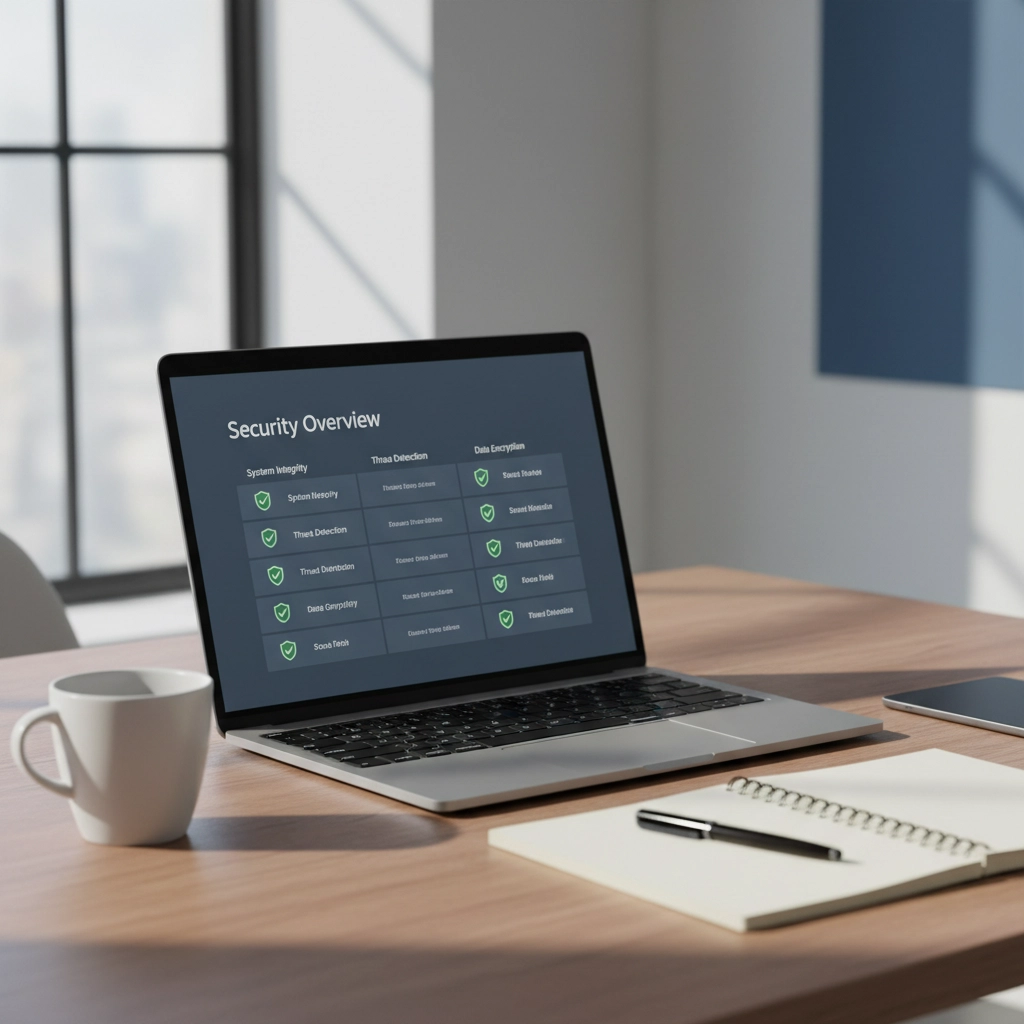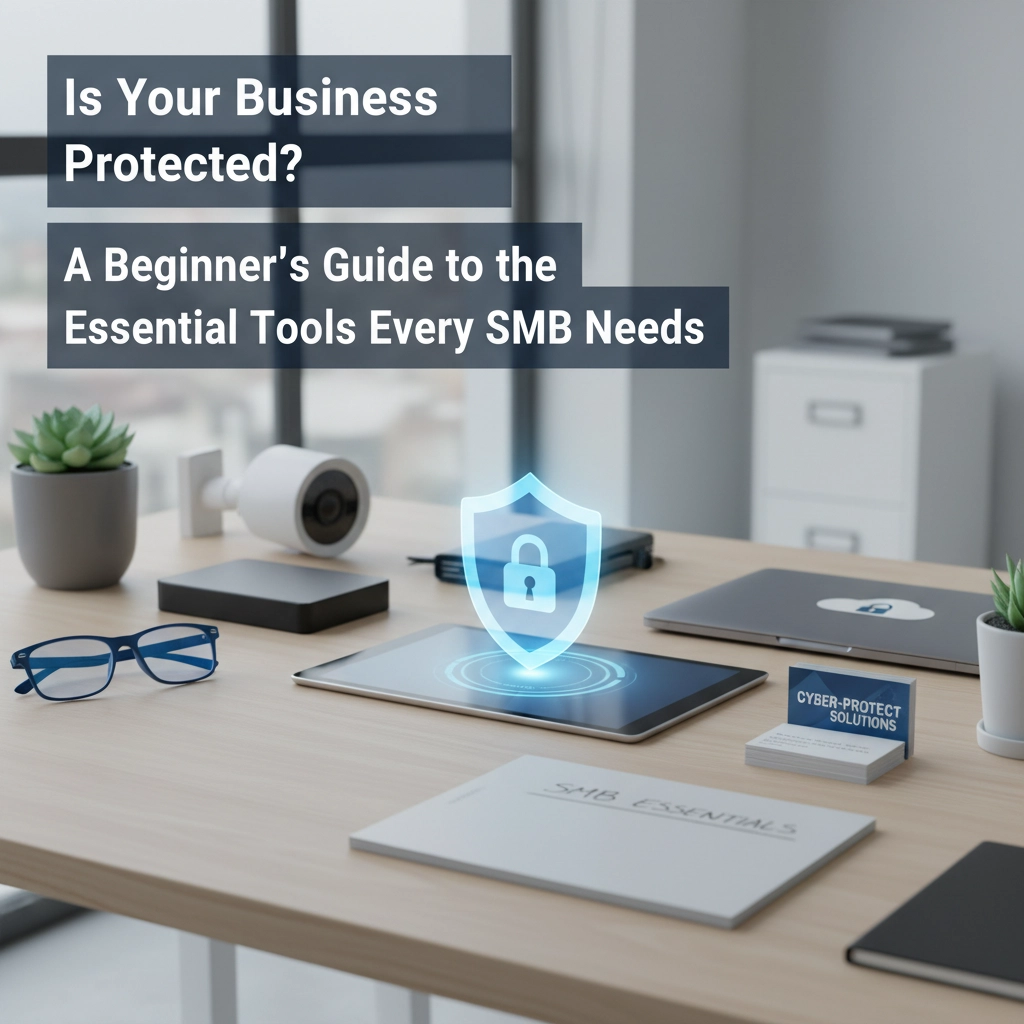Running a small or medium business in Peterborough means juggling countless responsibilities. Between managing employees, serving customers, and keeping the lights on, cybersecurity often gets pushed to the back burner. But here's the reality: cyber attacks don't discriminate based on business size. In fact, small businesses are often easier targets because they typically have fewer security measures in place.
The good news? You don't need a massive IT budget or a computer science degree to protect your business. With the right essential tools, you can create a solid security foundation that keeps your data safe and your business running smoothly.
Why Small Businesses Are Prime Targets
Before diving into solutions, let's talk about why hackers love targeting small businesses. It's not personal: it's purely practical from their perspective. Small businesses often have valuable data (customer information, financial records, business plans) but may lack the robust security systems that larger corporations have. This creates what cybercriminals see as low-hanging fruit.
The average cost of a data breach for a small business can range from thousands to hundreds of thousands of dollars. That's not just the immediate damage: it's also lost business, legal fees, and the time spent cleaning up the mess. Prevention is always cheaper than recovery.
Your Business Security Essentials Checklist
1. Antivirus and Anti-Malware Protection
This is your first line of defense and probably the most familiar tool on this list. Think of antivirus software as a digital security guard that watches for suspicious activity on your computers and servers.
Modern antivirus solutions do more than just catch viruses: they protect against ransomware, spyware, and other malicious software that could shut down your business. At Preferred Computer Solutions, we see firsthand how effective good antivirus protection can be. Our virus removal services have handled everything from simple malware infections to complex ransomware attacks, and in almost every case, having updated antivirus software would have prevented the problem entirely.

2. Firewall Protection
A firewall acts like a bouncer for your network: it decides what gets in and what stays out. Every business should have a firewall between their internal network and the internet. This creates a barrier that blocks malicious traffic while allowing legitimate business communications to flow normally.
Don't worry about the technical details. What matters is that you have one installed and properly configured. If you're not sure about your current firewall setup, it's worth having a CompTIA certified technician take a look.
3. Email Security Solutions
Email is often the front door for cyber attacks. Phishing emails that trick employees into clicking malicious links or downloading infected attachments are incredibly common. Email security tools filter out these threats before they reach your inbox.
Look for solutions that can:
- Block spam and phishing emails
- Scan attachments for malware
- Prevent accidental data leaks through email
- Provide encryption for sensitive communications
4. Reliable Backup Systems
Here's a simple truth: it's not if your business will face a data disaster, it's when. Whether it's a ransomware attack, hardware failure, flood, or fire, something will eventually threaten your business data. That's why backup isn't optional: it's essential.
At Preferred Computer Solutions, we partner with Carbonite to provide businesses with reliable, automated backup solutions. Carbonite continuously backs up your important files to secure cloud storage, so if disaster strikes, you can get back up and running quickly. We've seen too many businesses lose years of work because they didn't have proper backups in place.
A good backup system should:
- Run automatically (so you don't have to remember)
- Store copies both locally and off-site
- Allow quick recovery of individual files or entire systems
- Be tested regularly to ensure it actually works

5. Multi-Factor Authentication (MFA)
Passwords alone aren't enough anymore. Multi-factor authentication adds an extra step to the login process: typically a code sent to your phone or generated by an app. This means even if someone steals your password, they still can't get into your accounts without physical access to your phone.
Set up MFA on all your critical business accounts:
- Email systems
- Banking and financial accounts
- Cloud storage services
- Any software that stores customer data
6. Network Security Monitoring
This is where things get a bit more advanced, but it's increasingly important for businesses of all sizes. Network monitoring tools keep an eye on your business network 24/7, looking for unusual activity that might indicate a security breach.
For many small businesses, managed detection and response (MDR) services make the most sense. These services provide professional monitoring without the cost of hiring full-time security staff. If something suspicious happens, you get immediate alerts and expert help to address the threat.
7. Employee Security Training
Your employees are both your greatest asset and your biggest security risk. Most successful cyber attacks rely on tricking people rather than breaking through technical defenses. That's why security training is crucial.
Regular training should cover:
- How to identify phishing emails
- Safe internet browsing habits
- Password best practices
- What to do if they suspect a security incident
Don't make it boring or overly technical. Focus on practical, real-world scenarios they might actually encounter.

Choosing the Right Tools for Your Business
With so many security options available, how do you choose what's right for your business? Here are some key factors to consider:
Start with your budget. Security tools range from free basic options to enterprise-grade solutions costing thousands per month. Determine what you can reasonably afford, but remember that security is an investment, not an expense.
Consider your technical expertise. Some tools require ongoing management and configuration. If you don't have IT staff, look for solutions that are largely automated or come with professional support.
Think about scalability. Choose tools that can grow with your business. It's better to invest in a solution that might be slightly more than you need today than to outgrow it in six months.
Prioritize integration. Tools that work well together are more effective and easier to manage than a collection of standalone solutions.
Getting Professional Help
While some security measures can be handled in-house, others require professional expertise. At Preferred Computer Solutions, we work one-on-one with local businesses to assess their specific security needs and implement appropriate solutions.
We never send high-pressure salespeople: just experienced technicians who understand both technology and business needs.
If you're not sure where to start with your business security, we can perform a comprehensive assessment and provide clear recommendations based on your specific situation and budget.
Taking Action: Your Next Steps
Don't try to implement everything at once. Start with these priorities:
- Ensure you have current antivirus protection on all business computers
- Set up automated backups for your critical business data
- Enable multi-factor authentication on your most important accounts
- Schedule employee security training within the next month
- Have a professional assess your overall security posture
Remember, perfect security doesn't exist, but good security is absolutely achievable for businesses of any size. The key is to start now and build your defenses systematically over time.

The Bottom Line
Cybersecurity isn't just about technology: it's about protecting everything you've worked to build. Your customer relationships, your reputation, your financial stability, and your peace of mind all depend on keeping your business data secure.
The tools and strategies outlined in this guide provide a solid foundation for most small and medium businesses. They're not overly complex or expensive, but they are effective when implemented properly.
If you're ready to take your business security seriously, or if you need help figuring out where to start, give us a call. We're here to help Peterborough area businesses stay safe, secure, and successful.
Your business deserves protection. Your customers expect it. And with the right tools and support, it's completely achievable. Don't wait until after an attack to take security seriously( start building your defenses today.)



Recent Comments